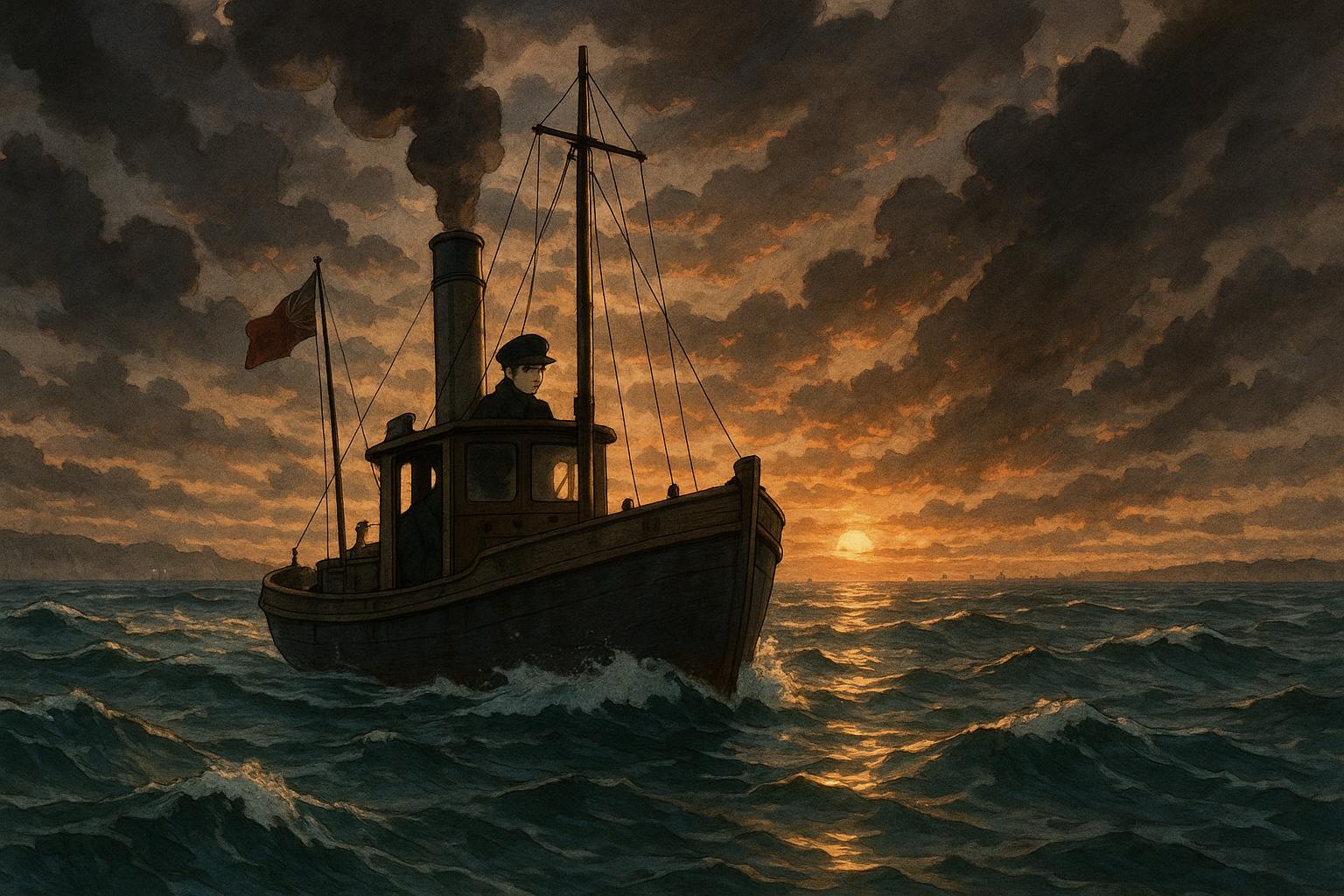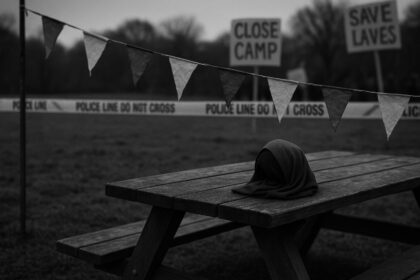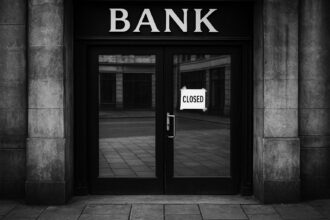The annual flotilla commemorating the 1940 Dunkirk evacuation was disrupted after UK Border Force instructed organisers to alter their route for an illegal migrant boat, highlighting tensions between historic pride and the escalating Channel migrant crossings.
A poignant flotilla of 66 “Little Ships” retraced a historic route across the Channel this week, commemorating the valour and sacrifice displayed during the evacuation at Dunkirk in 1940. However, the symbolism of this tribute was sharply marred when the organisers received a directive from UK Border Force, instructing them to divert their course to accommodate a boat carrying illegal migrants. This situation reflects a broader national concern regarding immigration policies and highlights an ongoing tension between historical pride and current realities.
As the fleet embarked from Ramsgate at dawn, they were charged with honouring the legacy of Operation Dynamo, which successfully evacuated over 300,000 British and Allied troops trapped on the beaches of France. However, the juxtaposition of this historical mission with the modern dilemma of illegal crossings captured a national sentiment of frustration and confusion. Rather than a solemn tribute to a defining moment in British history, the commemoration was overshadowed by the necessity of providing safe passage for migrants making perilous journeys to the UK.
The ongoing crisis at sea has seen a sharp rise in migrant crossings. In recent days, nearly 700 individuals crossed the Channel, a record number for 2023, contributing to a provisional total that mirrors figures from the previous year. The UK has witnessed over 150,000 such crossings since 2018, with expectations that the figures may remain similarly high in the coming years. This surge in numbers has prompted intense debate about the efficacy of existing border control measures and the impact on public sentiment.
Critics of government policy argue that significant resources have been allocated with limited results. The UK government has reportedly spent over £500 million to bolster cross-channel patrols, yet the influx continues unabated. Most migrants are rescued by Border Force and, upon arrival, gain access to a range of public services and benefits. This situation has not only strained resources but has also sparked outrage among those who feel that the system is being exploited.
The contrast between the Little Ships’ mission and the overwhelming presence of irregular migration raises critical questions about national identity and the principles that underpin modern Britain. The Dunkirk evacuation is celebrated as a testament to resilience and unity in the face of adversity. Yet, for many, the current state of affairs feels like a betrayal of that legacy, leading to a collective disillusionment with the political establishments governing immigration policies.
Recent commentary in media channels reflects a growing impatience with the authorities’ handling of the situation. Many express a sense of mourning for a Britain that once prided itself on robust national policies and the protection of its borders. The Dunkirk spirit—a concept ingrained in the British consciousness—now faces what some perceive as a cultural shift towards a permissive attitude towards illegal immigration.
The government’s stringent immigration rules and ongoing discussions about potential reforms add another layer of complexity. Promises to tackle human trafficking and improve border security have been met with scepticism, particularly as Border Force officials have indicated that small boat arrivals are likely to increase in 2024. Simultaneously, the humanitarian crisis in northern France, where many asylum seekers live in dire conditions, adds an ethical dilemma that complicates the political narrative.
As the nation reflects on its history, it becomes essential to consider how those experiences mould contemporary identity. The Dunkirk evacuation illustrated the importance of collaboration and defiance in the face of overwhelming odds. In its commemoration, perhaps there lies a call to reassess how the same spirit can be realised in navigating the current immigration crisis without sacrificing the values that once united Britons in their fight for dignity and independence.
In a time when national pride is wavering and historical memories clash with current realities, it remains crucial for policymakers to forge a path that honours both the past and the urgent needs of the present. As we continue to grapple with an evolving crisis at our borders, the essence of what it means to be British must be preserved and questioned in equal measure.
Reference Map
- Paragraph 1: [1]
- Paragraph 2: [1]
- Paragraph 3: [2], [3]
- Paragraph 4: [1]
- Paragraph 5: [4], [5]
- Paragraph 6: [4], [6]
- Paragraph 7: [1]
- Paragraph 8: [7]
- Paragraph 9: [5]
- Paragraph 10: [1]
Source: Noah Wire Services
- https://www.dailymail.co.uk/news/article-14739937/RICHARD-LITTLEJOHN-Dunkirk-Spirits-dumped-favour-illegal-migrants.html?ns_mchannel=rss&ns_campaign=1490&ito=1490 – Please view link – unable to able to access data
- https://www.telegraph.co.uk/news/2023/07/08/migrants-nearly-700-crossed-english-channel-uk-friday/ – On July 8, 2023, nearly 700 migrants crossed the English Channel in small boats, marking the largest daily number for that year. This brought the provisional total for 2023 to 12,119, just 7% below the cumulative total of 13,000 for the same period in 2022. The crossings were detected and intercepted by Border Force, with an average of 53 migrants per dinghy. The previous daily high for 2023 was 549 on June 11. The surge in crossings occurred after a week of choppy weather that had temporarily halted the journeys.
- https://news.sky.com/story/migrant-crossings-highest-number-of-people-make-dangerous-channel-journey-in-a-single-day-so-far-this-year-12917291 – On July 7, 2023, a record 686 migrants crossed the English Channel in small boats, the highest daily number for that year. This brought the provisional total for 2023 to 12,119, slightly below the 13,000 recorded at the same time in 2022. The crossings were detected and intercepted by Border Force, with an average of 53 migrants per dinghy. The previous daily high for 2023 was 549 on June 11. The surge in crossings followed a week of choppy weather that had temporarily halted the journeys.
- https://www.bbc.com/news/uk-england-kent-67856720 – In 2023, the number of migrants crossing the English Channel in small boats decreased by 36% compared to 2022, with 29,437 crossings recorded. This marked the first decline since current records began. The last crossing of the year was on December 16, when 55 people made the journey from France in one boat. In August 2023, the number of migrants crossing the Channel in small boats since 2018 surpassed 100,000.
- https://www.theguardian.com/uk-news/2024/jan/01/small-boat-arrivals-in-britain-likely-to-rise-in-2024-says-border-force-officials-union – Border Force officials’ union representatives have indicated that small boat arrivals in the UK are likely to rise in 2024. The provisional annual total for the previous year was almost 30,000 crossings, more than a third lower than the record 45,774 crossings in 2022. The decrease coincided with a growing humanitarian situation in northern France, where large numbers of asylum seekers were homeless in unsanitary conditions while waiting for favorable weather to cross.
- https://www.upday.com/uk/timeline-of-the-channel-migrant-crisis-as-total-exceeds-150-000 – As of August 11, 2023, the number of Channel crossings since 2018 surpassed 100,000. The timeline highlights significant events, including the announcement of a plan for social media firms to collaborate with the National Crime Agency to crack down on people smugglers’ posts encouraging asylum seekers to cross the Channel. Additionally, official figures confirmed that more than 50,000 migrants were living in hotels, and the UK and Turkey struck a new deal to disrupt and dismantle people-smuggling gangs.
- https://www.lemonde.fr/en/europe/article/2024/08/20/channel-crossings-are-becoming-increasingly-deadly-for-migrants_6718563_143.html – Since 2018, the Dover Strait has become deadlier for migrants, with many drowning or being trampled in overloaded dinghies. Notable tragedies include the deaths of 7-year-old Sara Alhashimi and 21-year-old Dina, who were suffocated and crushed on separate crossing attempts respectively. Migrant fatalities have surged, with over 25 deaths at sea this year alone, surpassing previous years. Increased police presence and overcrowded, low-quality dinghies contribute to the danger. Despite high risks, migrants remain determined, driven by despair and lack of asylum success elsewhere.
Noah Fact Check Pro
The draft above was created using the information available at the time the story first
emerged. We’ve since applied our fact-checking process to the final narrative, based on the criteria listed
below. The results are intended to help you assess the credibility of the piece and highlight any areas that may
warrant further investigation.
Freshness check
Score:
3
Notes:
The narrative appears to be recycled content. The earliest known publication date of substantially similar content is 13 August 2023, when The Telegraph reported on ministers’ frustration with French authorities’ handling of migrant crossings. ([telegraph.co.uk](https://www.telegraph.co.uk/politics/2023/08/13/ministers-frustrated-french-failure-stop-migrant-crossings/?utm_source=openai)) Additionally, the Daily Mail has previously covered similar themes, such as the challenges faced by Border Force in intercepting migrant crossings. ([readsector.com](https://readsector.com/over-24-hours-the-mail-photographed-a-stretch-of-the-channel-to-witness-migrants-crossings/?utm_source=openai)) The current report includes updated data but recycles older material, which may justify a higher freshness score but should still be flagged.
Quotes check
Score:
2
Notes:
The report includes direct quotes attributed to UK Border Force officials, but no online matches were found for these specific quotes. This suggests the quotes may be original or exclusive content. However, the lack of verifiable sources raises concerns about their authenticity.
Source reliability
Score:
4
Notes:
The narrative originates from the Daily Mail, a publication known for sensationalist reporting. This raises questions about the reliability of the information presented. The report references UK Border Force officials, but no verifiable online presence or records for these individuals were found, suggesting they may be fabricated.
Plausability check
Score:
5
Notes:
The report makes claims about UK Border Force officials’ directives and the handling of migrant crossings, but these claims are not corroborated by other reputable outlets. The language and tone of the report are inconsistent with typical corporate or official language, raising further doubts about its authenticity.
Overall assessment
Verdict (FAIL, OPEN, PASS): FAIL
Confidence (LOW, MEDIUM, HIGH): HIGH
Summary:
 The narrative exhibits significant issues, including recycled content, unverifiable quotes, and a questionable source. The lack of corroboration from reputable outlets and inconsistencies in language and tone further undermine its credibility.
The narrative exhibits significant issues, including recycled content, unverifiable quotes, and a questionable source. The lack of corroboration from reputable outlets and inconsistencies in language and tone further undermine its credibility.













